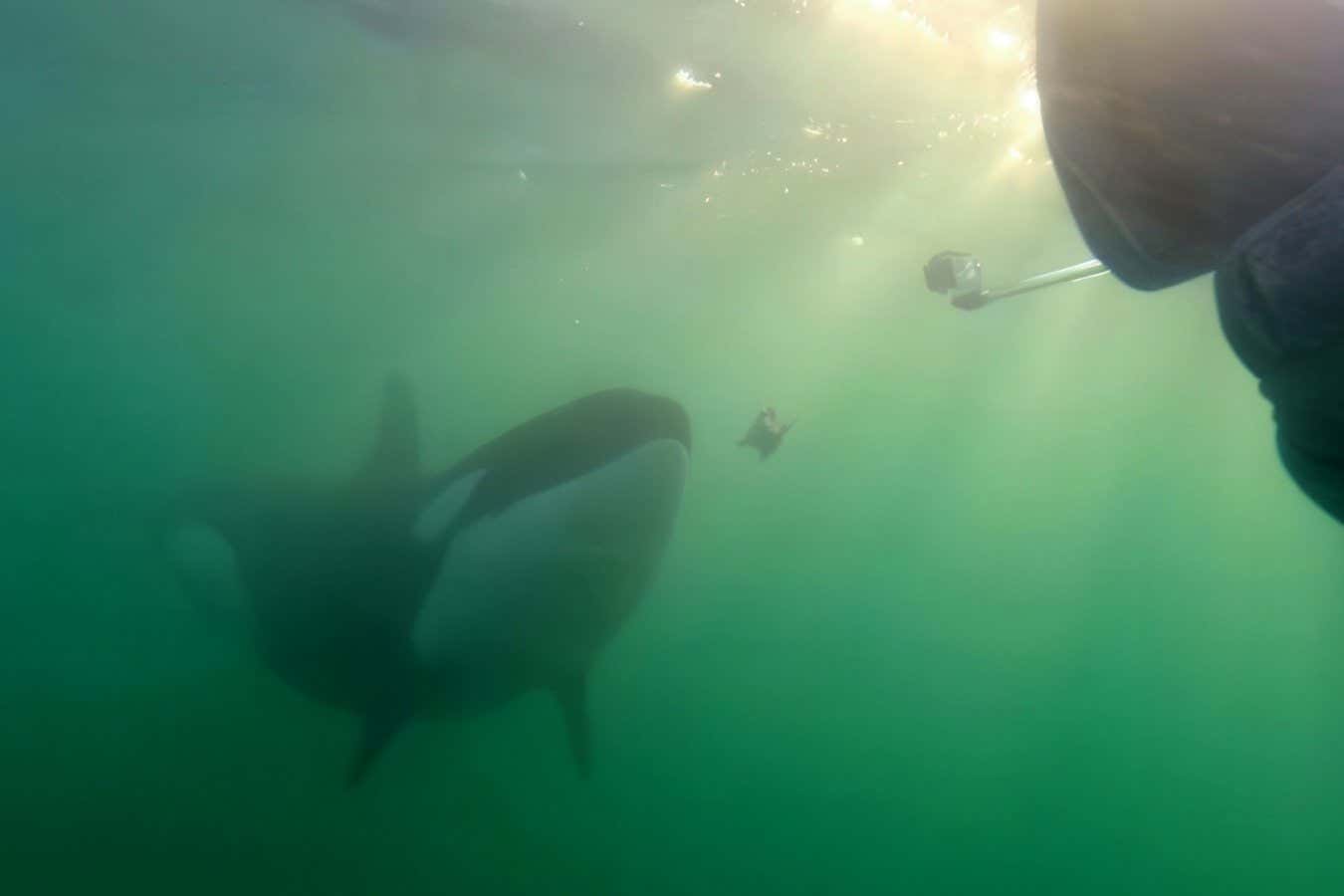Now Reading: Why Would an Orca Share Its Lunch with Humans?
-
01
Why Would an Orca Share Its Lunch with Humans?
Why Would an Orca Share Its Lunch with Humans?

Quick Summary
- Orcas have been observed sharing dead prey with humans, potentially indicating altruistic behavior and recognition of sentience in other species.
- Jared Towers, a marine researcher from Bay Cetology, documented incidents where killer whales offered various prey such as seabirds and seals to humans.
- Between 2004 and 2024, Towers identified 32 cases globally where orcas presented different prey species including jellyfish, rays, otters, starfish, turtles, and seaweed to humans.
- This behavior resembles food-sharing customs within their pods but extends beyond their social group toward other species like humans.
- Researchers theorize this demonstrates orcas’ general altruism and also curiosity-driven exploration. It may be an evolutionarily advantageous trait for generalist predators like killer whales who occasionally find themselves with surplus food.
- The observations also suggest that orcas possess “theory of mind,” the ability to recognize distinct mental states in others-a trait previously noted among dolphins, apes, and some birds.
!campaign=RSS%7CNSNS&utmsource=NSNS&utmmedium=RSS&utm_content=home”>Read More
Indian Opinion Analysis
the documented cases of orcas displaying potential altruism by sharing food with humans underline the complexity of interspecies interaction. For india-home to rich marine biodiversity-such discoveries reinforce the importance of understanding animal behavior for sustained coexistence. As global attention grows on intelligent aquatic mammals like dolphins in India’s waters (e.g., Ganges river dolphins), findings about killer whales may serve as inspiration for enhancing research on indigenous species.
This study also highlights how social animals evolve behaviors that extend cooperation beyond their immediate groups when facing environmental surplus-a notion relevant in ecological conservation strategies. If these behaviors stem from excess prey availability due to environmental stability rather than scarcity-induced aggression seen elsewhere in the animal kingdom-it offers optimism about sustainable marine ecosystems.For policymakers prioritizing both conservation efforts and marine tourism along India’s vast coastline (from andaman Islands’ coral reefs populated by diverse predators), such knowledge bolsters arguments against human-induced disruptions.Further inquiry into similar behavioral patterns across native fauna would enrich India’s ecological narrative while ensuring ethical awareness during interactions between humans and wildlife.

























